- Accessibility
- Request a Call Back
- Quick Drop CV
- Submit Timesheet
- About Us
- For Candidates
- For Clients
- News & Views
- Events
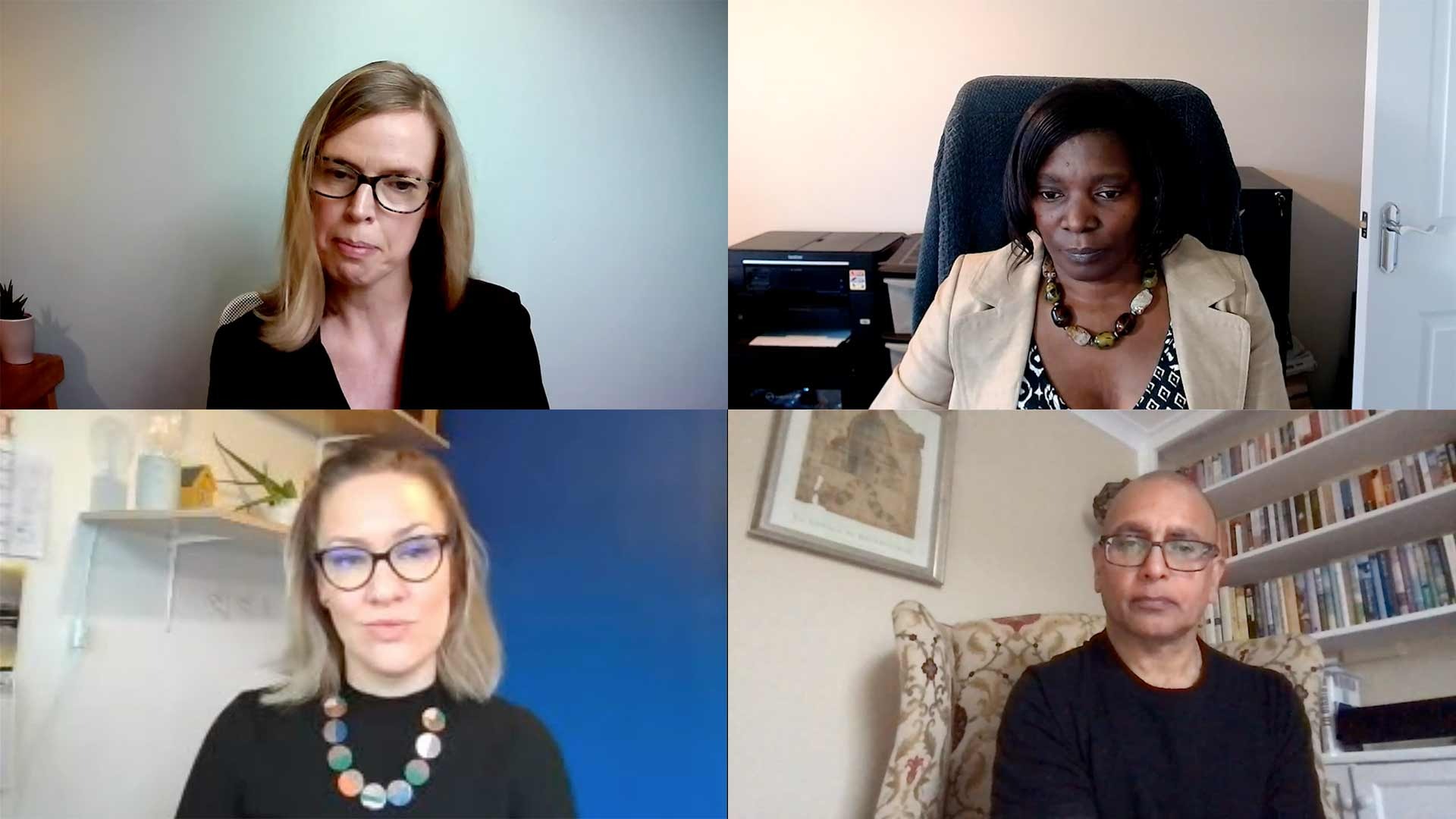
On 27th January 2021 Morgan Hunt delivered a webinar on diversity and inclusion titled 'Celebrating different perspectives - Why diversity matters'. We were joined by diversity and inclusion experts Carmen Morris, Amarjit Singh Basi and Hannah Manyewu to outline the benefits of diverse and inclusive workplaces, the challenges facing the implementation of D&I and how these challenges can be overcome. See a summary of the webinar below or watch the full recording at the bottom of this page:
Diversity and inclusion have been at the forefront of many people's and organisation's minds since the events of 2020. The Black Lives Matter movement shone a light on the importance of equality for all people in all areas of life. The need to be treated equally is vital within the workplace, as it's a place where people spend most of their days and lives.
In our webinar, our speakers outlined that there are many benefits to be gained from creating diverse and inclusive workplaces. Fostering these kinds of professional environments helps people feel more comfortable. As a result, they are more engaged in their work and with the people around them. Collaboration improves, as does their productivity and effectiveness. As a whole, job satisfaction increases, barriers that in the past made work difficult are reduced and the performance of all employees is boosted.
It's hard to argue against improving the wellbeing of your employees, but there are many benefits to organisations too. Improved employee effectiveness and productivity improves the overall performance of the business. Many studies have shown there is a strong positive correlation between diversity and inclusion and business success. Beyond this, D&I practices foster strong and supportive cultures that people want to work in. It makes retaining talent and attracting skilled people to your organisation much easier.
But how do you begin improving diversity and inclusion? It has to start with senior leadership and management. Boards must authentically buy into the need to improve and understand the challenges that the least privileged people in their organisations face. This requires leaders and managers in an organisation to speak to the people affected and take the time to hear about their lived experiences, the barriers they face and any areas of improvement they have identified.
But the role of leadership doesn't stop there. Next, they must put what they have learnt to action. Improving diversity and inclusion is about creating a change in culture which must be driven from the top down to be authentic. Representing marginalised groups within management is an important step that ensures all perspectives are heard and considered.
Leaders and management aren't alone though. Setting the culture requires buy in and support from all functions of the business. Management must take ownership of this process and invest in the development of staff at all levels. Through this, employees throughout the organisation will gain the knowledge and understanding to make this change in culture effective and, most importantly, permanent.
In the past year we have seen an increase in the number of diversity and inclusion job roles. The creation of positions with this specific focus signals a promising commitment to improvement, however it is important that these appointments are not just tokenistic. These job roles must be thought out and organisations should at least have some understanding of their areas of improvement or what they want to achieve. Otherwise, businesses risk destroying any credibility they have in wanting to promote diversity and inclusion.
For people in these roles, there are a number of factors that will determine their success. Most importantly you should have a direct line of communication to the board or senior leadership team. If this doesn't exist, it is unlikely your role will have the impact that is needed to create change within the organisation. D&I advocate Hannah Manyewu suggests that your definition of success should be based on achieving results through others. Your aim should be to mobilise internal groups across all functions, build momentum and interest in improving D&I and ultimately hold leadership accountable.
Recruitment is also critical in creating diverse and inclusive workplaces. Hiring people from different backgrounds shows a commitment to improving the diversity of the workforce and brings in new perspectives and ideas which can help an organisation thrive. To practice inclusive recruitment, businesses should understand their employer brand and how it is perceived by potential applicants. Through this you gain insight into how you may have to improve how you communicate your employer value proposition to appeal to a diverse range of applicants. Fair and unbiased recruitment methods such as psychometric testing and blind application reviews are also useful tools to make the hiring process as inclusive as possible.
Since last year we have seen a lot of progress, but it is just the beginning. It is important to acknowledge that change doesn't happen overnight, but organisations must begin taking the steps to create more diverse and inclusive environments. Our speakers Carmen, Amarjit and Hannah hope that in the next year we will continue to see more leadership and executive roles filled by people with diverse characteristics, increased publicly visible commitment to the cause and real accountability to change through evidence and case studies.
Find out how you can improve internal diversity and create inclusive workplaces. Contact Clare Keniry, Head of Diversity & Inclusion at Morgan Hunt – clare.kenriy@morganhunt.com.
Children and young people across the UK have had their lives turned upside down by the coronavirus pandemic. Almost every young person has had to adjust to dramatic changes in their education or employment, routine and home life. So it's important that as individuals and organisations we understand those challenges. And even more so important that we know how to support young people through them.
On October 13th Morgan Hunt hosted the webinar 'Youth Mental Health during Covid-19: How to support under 25s', helping to increase awareness of this issue and provide a learning opportunity for attendees. The online session was hosted by Clare Keniry, Technology Recruitment Director at Morgan Hunt. We were joined by guest speakers David Beeney and Jack Parsons.
David is the Founder of Breaking the Silence. He has established himself as one of leading advisers in the UK on how to drive employee engagement through an effective wellbeing programme.
In 2018, David was proud to have been listed in the top 101 influencers globally on employee engagement, he is also a qualified Mental Health Counsellor affiliated to the BACP (British Association of Counsellors and Practitioners) and a Trustee for mind.
He specialises in creating cultures of trust that are free from the stigma of mental health that are all inclusive.
Jack Parsons is an award-winning young entrepreneur, public speaker and subject expert on Youth and is publicly known as the UK’s Chief Youth Officer.
Jack has been honoured awards over the last 3 years including Young Digital Leader Of The Year, The 100 Faces of a Vibrant Economy, Most Connected Young Entrepreneur, 50 Top kindest leaders and Top 10 UK Young Entrepreneurs to Watch.
Jack's personal mission is to knock down doors for others to walk through after having a tough upbringing and lack of career support from the school, learning from failure and being motivated to make a real impact for young people.
Jack is currently the CEO of The Youth Group which is building the world’s largest most connected marketplace and community for young people with one aim: to help improve the odds for young people across the Commonwealth to achieve their full potential in work.
In addition to running The Youth Group Jack advises a number of organisations and figure heads on young people, including governments.
Young people are just as concerned about their futures as they are about their current situation
Individuals and organisations need to lead the way in normalising and encouraging conversations around mental health
Cultures need to be created where young people feel comfortable being themselves
Look for any change of behaviour in young people you know as this might signify that they're struggling with their mental health
To initiate a conversation, ask genuinley how they are doing. Asking how someone is feeling out of 10 makes it easier for the person to give a clear idea of how they are.
Sharing your own struggles and vulnerabilities gives others permission and comfort to share theirs
Plan to have others with specific expertise around when a conversation about somone's mental health becomes more serious. Saying the wrong thing in this situation could be dangerous
You can watch a recording of the full webinar below.
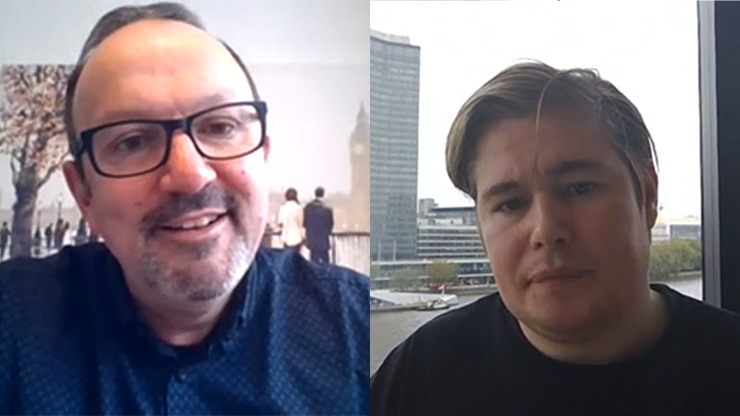
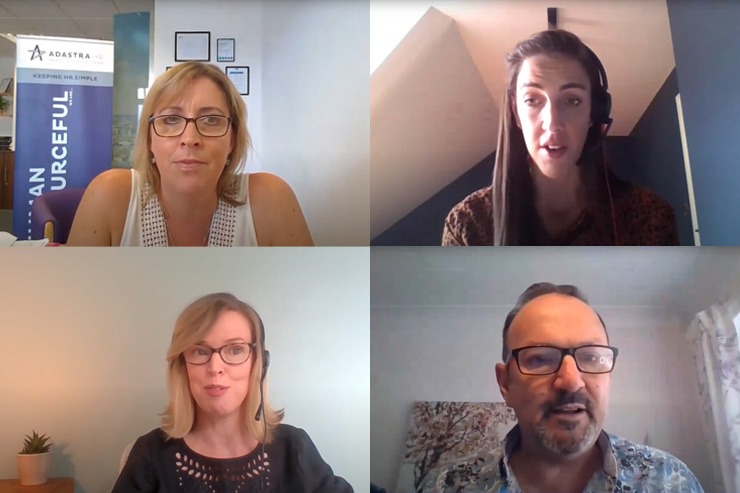
In this webinar we were joined by Alison Daymond, Heather Aust and David Beeney for a live panel discussion on the topic of life after lockdown and returning to the workplace. During the session our expert guest speakers from the worlds of mental health & wellbeing, employment law and human resources answered attendees' questions about returning to the office and some of the concerns around this transition.
Understandably, many are concerned about their health and safety. And many are reluctant to return to office following the Covid-19 pandemic. So, should businesses return to the workplace? If they do, what are the steps employers need to take to support their employees? And how can teams function if there is a divide in opinion about what the best approach is?
These are some of the questions that were answered throughout the session.
76% of organisations are expecting to increase their use of team coaching (6th Ridler Report) in the near future. In our webinar on high peforming teams our guest speakers Paul Barbour and Lucy Widdowson explained how the fastest growing area of coaching is helping to grow and transform organisations.
You can view a recording of the session below.You will learn:
The Covid-19 pandemic has forced many organisations to shift to remote or more flexible working and although we don't yet know what the world of work will look like when the pandemic ends, it is safe to assume that remote and flexible working will become the new norm.
Although remote and flexible working has many benefits, it also puts immense strain on teams, which you and your organisation may have already experienced. Some of the largest challenges teams face in the New World of Work include:
It has never been more important that teams know how to work well together and communicate effectively and team coaching can help you achieve this.
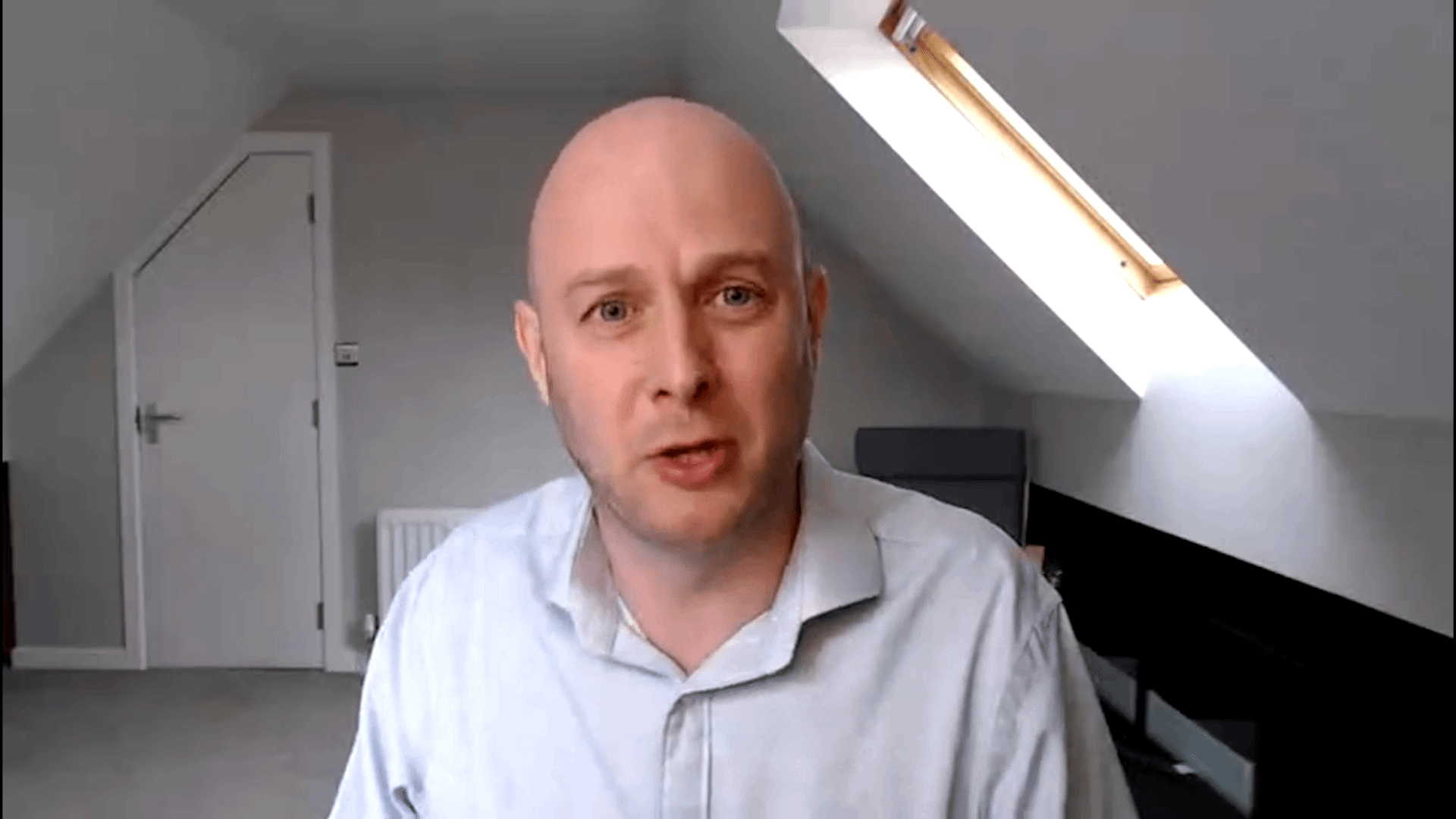
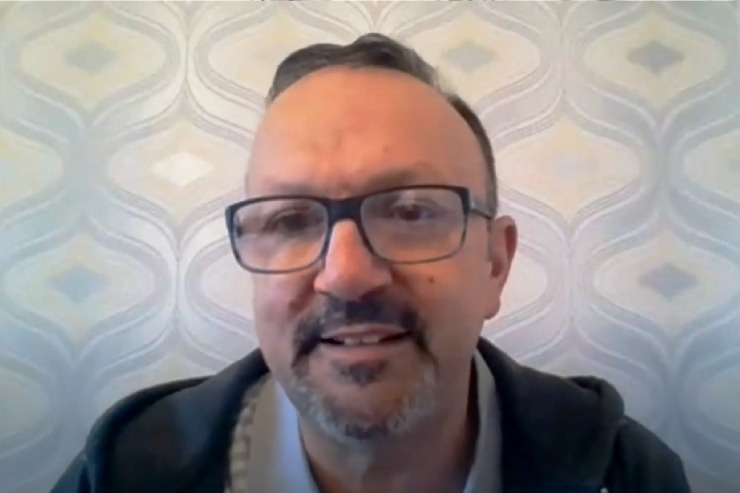
Our mental health has never been so challenged en masse as we struggle to cope with the coronavirus crisis. Below you'll find a recording of our webinar 'Managing Mental Health in Challenging Times' that took place on the 6th May. We hosted a Q&A with the inspirational David Beeney.
David was recognised in 2018 as one of the top 101 influencers globally on employee engagement, he is also a qualified Mental Health Counsellor affiliated to the BACP (British Association of Counsellors and Practitioners) and a trustee for Mind.
In the webinar we explored how to improve our own levels of personal resilience, as well as the best ways of keeping staff engaged, with particular emphasis on how to stay emotionally connected with remote workers.
Key themes we explored:
We explored ideas of how to create a kinder culture ‘remotely’ where people are caring, supportive and more empathetic of each other’s anxieties.
We looked at what is considered best practice for managers to inspire employees to remain engaged during exceptionally challenging times.
We looked at the importance of using the right language to encourage honest and open conversation about wellbeing.
We looked at how you can improve your own levels of personal resilience during challenging times.
We looked at how to inspire employees to be more open by saying ‘it’s okay not to be okay’ and by sharing our own vulnerabilities.